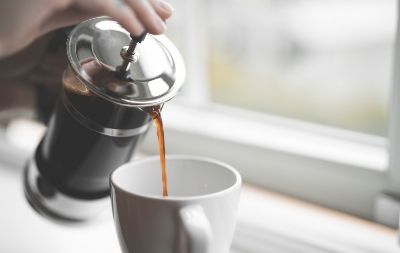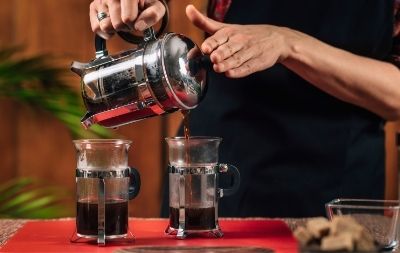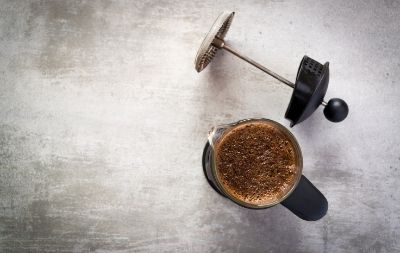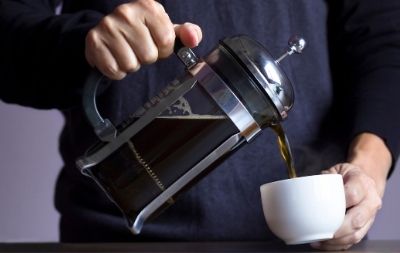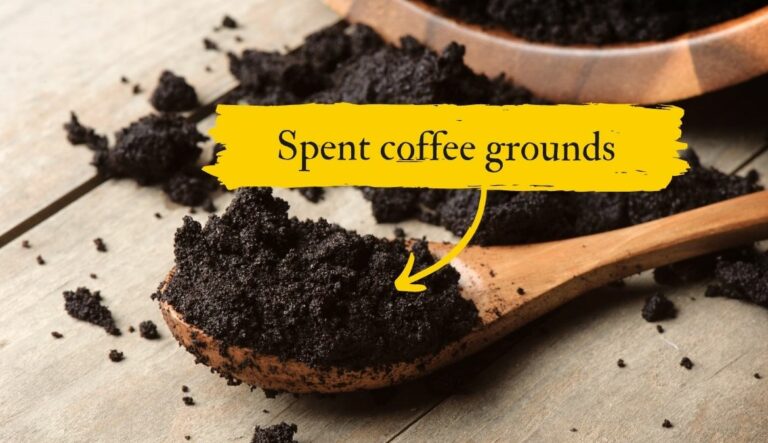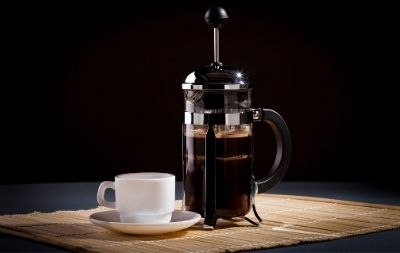While learning to brew French Press I often ended up with a cup of coffee that was bitter to taste. I wasn’t sure why this was happening so I did some research.
French Press coffee tastes bitter when the grind size is too fine. Finely ground beans have a greater surface area and over-extract when they brew for too long, like they do in French Press coffee. This causes an astringent texture and bitter flavor to be drawn from the beans.
Read on if you’re curious to learn what else I discovered about bitter French Press coffee. Including some other possible causes of bitterness.
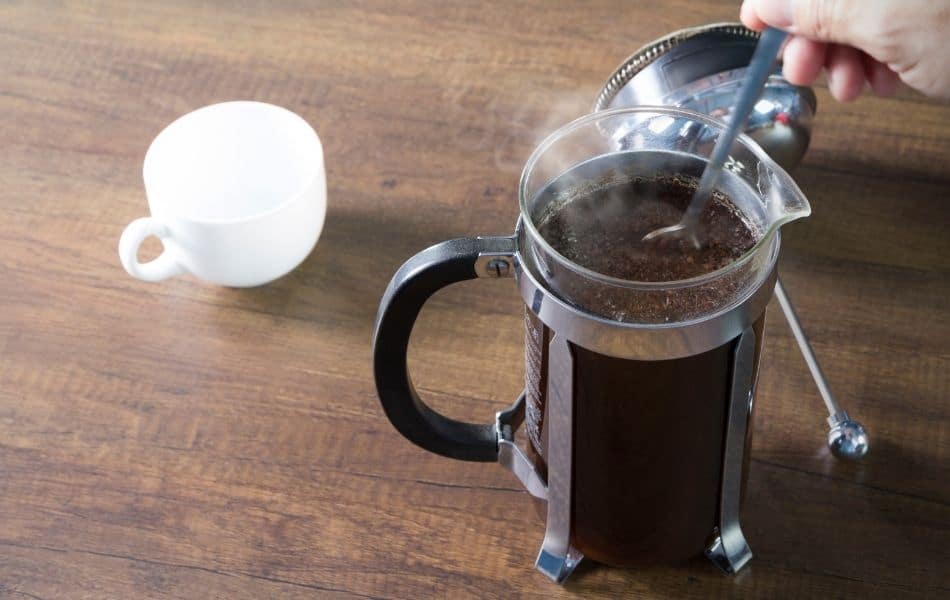
I learned that grind density, water temperature and brew duration are the main factors that affect how French Press coffee tastes. Any or all of these factors can cause bitterness if done incorrectly.
Let’s start with grind density.
Finely ground beans cause bitterness
Finely ground coffee beans are more likely to cause bitterness because they extract more quickly into water. This is because they have a larger surface area that makes contact with the water.
A greater surface area over-extracts
The grind density significantly affects how quickly flavor will be extracted from the coffee beans into water. The reason for this has to do with the surface area of the grounds.
When a coffee bean is broken into a smaller piece, the surface area increases because the exterior and now some of the interior are exposed. A greater surface area allows more contact with the water, and consequently causes the grounds to extract organic compounds into the beverage at a quicker rate.
Bitterness occurs when too much is extracted from the grounds.
As long as you brew your French Press coffee for a consistent amount of time and at a consistent temperature, the grind density becomes the main factor that influences the taste of your coffee.
So if your French Press is too bitter, try grinding more coarse grounds.
Inconsistent grind density can add bitterness
It’s possible that your coffee grinder is set to an appropriate grind density for French Press, but is still producing bitter coffee. This is because lower quality grinders do not evenly grind beans and will produce both coarse and fine grounds.
The varying grind density will cause the finer grounds to over-extract and produce a bitter taste, while the coarser grounds will under-extract and add sourness.
This is especially common for many pre-ground store bought beans or beans ground using a blade grinder.
The best solution is to consider buying a conical burr grinder or to ask your local barista to grind your beans for you.
High water temperature can cause bitterness
Bitter French Press coffee can also occur when your water is too hot. This is because coffee beans have water-soluble flavor compounds that dissolve in water. These compounds dissolve more quickly when the water increases in temperature.
According to the National Coffee Association the ideal water temperature is between 195°F and 205°F, or 90°C to 96°C. Water temperature above or below this range will change how quickly your coffee brews and will have a noticeable effect on the flavor.
For bitter French Press coffee, try reducing your water temperature a few degrees.
To achieve the recommended French Press temperature range without a thermometer, bring your water to a rolling boil, take it off the heat and let it sit for 60 seconds before pouring.
Long brew duration can cause bitter French Press coffee
Brewing your French Press for too long can also cause bitterness due to over-extraction. The longer your grounds brew, the more flavour compounds will be extracted into the water.
It’s recommended that you brew French Press coffee for 4 minutes, but you can certainly experiment with a different brew time based on your own preferences.
Adding too much coffee grounds will cause bitterness
A high ratio of coffee grounds to water can also cause your French Press to over-extract and produce a bitter taste. A good starting ratio is 1 gram of coffee to 15 grams of water.
A typical 8 ounce coffee mug has 226 grams, which means you would brew 15 grams of French Press grounds. A 10 ounce mug is 283 grams of liquid, which means you would use 19 grams of coffee.
Use a scale to measure your coffee more accurately
Many people use scoops to measure their coffee, which is quick and easy and will usually be relatively accurate. But if you’re really concerned about removing bitterness and want to be a bit of a coffee scientist, consider using a digital scale to accurately measure your coffee weight.
Measuring the weight of your grounds will result in a more consistent cup of coffee. The volume may change depending on how coarsely your coffee is ground so scoop measurements may not always be accurate.
I use an Ozeri food scale, which cost about $30 CAD ($23 USD).
Eliminate bitterness with freshly ground coffee beans
Most coffee aficionados recommend grinding your beans fresh each time you prepare a cup of French Press, or any style of coffee for that matter. Once a coffee bean has been cracked open, it’s exposure to oxygen and mixture can cause the aromas, oils and flavors to dilute.
Stale or less-than-fresh grounds contribute to a less enjoyable tasting experience. It is a lesser likely reason for causing bitterness, but it is something to be aware of if you’re running out of options.
How to determine what is causing bitter French Press coffee
As we have learned, there are several causes for bitter French Press coffee. So, how do you determine which one is affecting your brew?
Start by precisely measuring your brewing process
Precision is key for brewing a tasty and consistent cup of French Press. It will be difficult to diagnose what is causing bitterness if you don’t measure your water temperature, coffee-to-water ratio, brew time or grind density.
Grind density is the most difficult of these to measure, so start with the other three.
Start with a recommended French Press recipe and adjust from there
You can certainly adjust each of these variables as you would like. But I would recommend starting with a basic French Press recipe and then testing individual variables from there until you discover your own perfect recipe.
Here’s what I recommend:
- Water temperature between 195°F and 205°F, or 90°C to 96°C.
- 1:15 coffee-to-water ratio. This would be 15 grams of coffee for an 8 ounce mug or 19 grams of coffee for a 10 ounce mug.
- 4 minute brew time. Set a timer and be precise.
From here, you can experiment with a few different grind densities until you find one that produces a desirable flavor.

